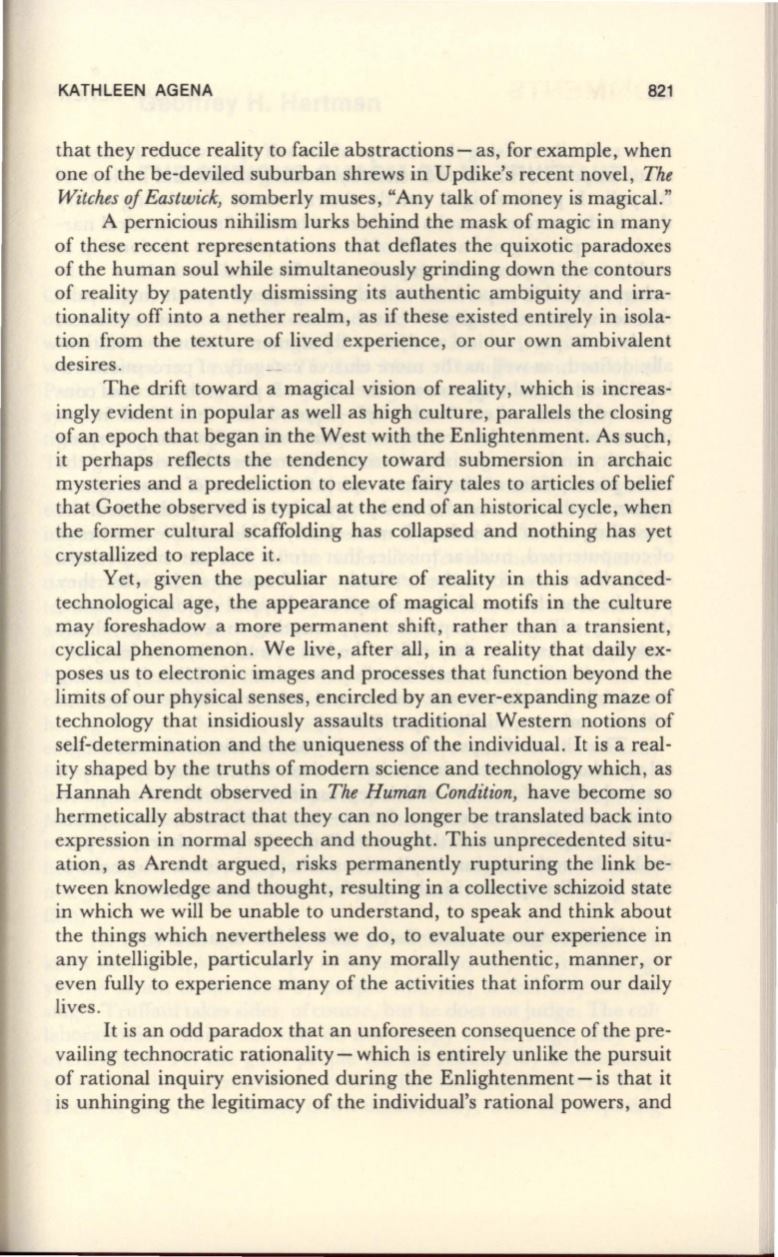
KATHLEEN AGENA
821
that they reduce reality to facile abstractions- as, for example, when
one of the be-deviled suburban shrews in Updike's recent novel,
The
Witches ofEastwick,
somberly muses, "Any talk of money is magical."
A pernicious nihilism lurks behind the mask of magic in many
of these recent representations that deflates the quixotic paradoxes
of the human soul while simultaneously grinding down the contours
of reality by patently dismissing its authentic ambiguity and irra–
tionality off into a nether realm, as if these existed entirely in isola–
tion from the texture of lived experience, or our own ambivalent
desires.
The drift toward a magical vision of reality, which is increas–
ingly evident in popular as well as high culture, parallels the closing
of an epoch that began in the West with the Enlightenment. As such,
it perhaps reflects the tendency toward submersion in archaic
mysteries and a predeliction to elevate fairy tales to articles of belief
that Goethe observed is typical at the end of an historical cycle, when
the former cultural scaffolding has collapsed and nothing has yet
crystallized to replace it.
Yet, given the peculiar nature of reality in this advanced–
technological age, the appearance of magical motifs in the culture
may foreshadow a more permanent shift, rather than a transient,
cyclical phenomenon. We live, after all, in a reality that daily ex–
poses us to electronic images and processes that function beyond the
limits of our physical senses, encircled by an ever-expanding maze of
technology that insidiously assaults traditional Western notions of
self-determination and the uniqueness of the individual. It is a real–
ity shaped by the truths of modern science and technology which, as
Hannah Arendt observed in
The Human Condition,
have become so
hermetically abstract that they can no longer be translated back into
expression in normal speech and thought. This unprecedented situ–
ation, as Arendt argued, risks permanently rupturing the link be–
tween knowledge and thought, resulting in a collective schizoid state
in which we will be unable to understand, to speak and think about
the things which nevertheless we do, to evaluate our experience in
any intelligible, particularly in any morally authentic, manner, or
even fully to experience many of the activities that inform our daily
lives.
It is an odd paradox that an unforeseen consequence of the pre–
vailing technocratic rationality- which is entirely unlike the pursuit
of rational inquiry envisioned during the Enlightenment- is that it
is unhinging the legitimacy of the individual's rational powers, and


